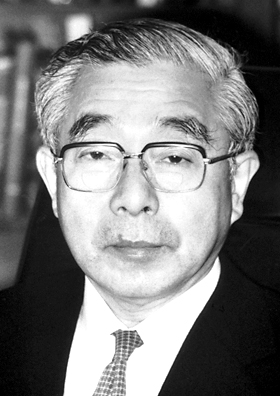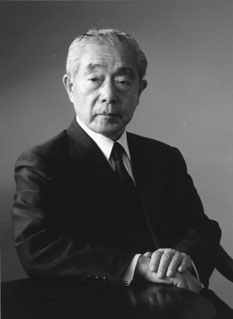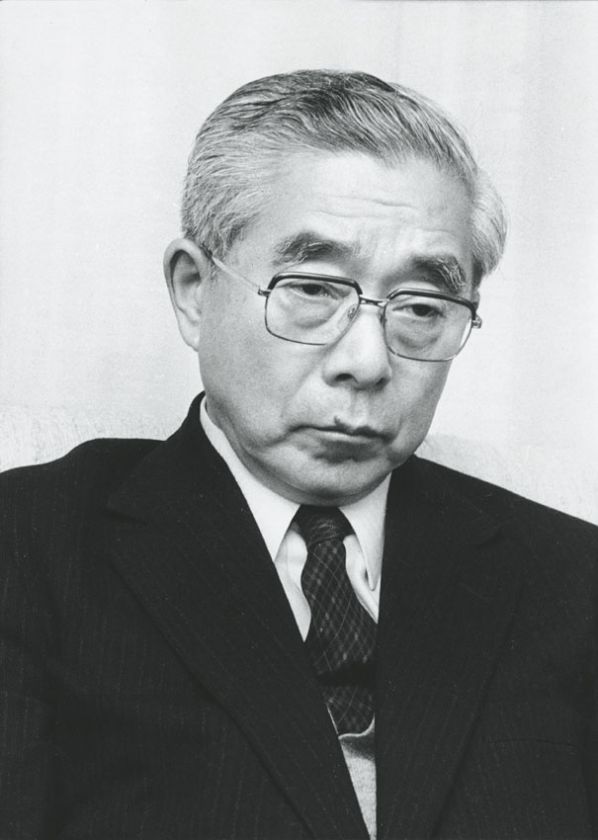<Back to Index>
- Chemist Kenichi Fukui, 1918
- Dramatist Francisco de Rojas Zorrilla, 1607
- Prime Minister of Italy Francesco Crispi, 1819
PAGE SPONSOR



Kenichi Fukui (福井 謙 一 Fukui Ken'ichi, October 4, 1918 – January 9, 1998) was a Japanese chemist.
Kenichi Fukui was co-recipient of the Nobel Prize in Chemistry in 1981 with Roald Hoffmann, for their independent investigations into the mechanisms of chemical reactions. His prize winning work focused on the role of frontier orbitals in chemical reactions: specifically that molecules share loosely bonded electrons which occupy the frontier orbitals, that is the Highest Occupied Molecular Orbital (HOMO) and the Lowest Unoccupied Molecular Orbital (LUMO).
Fukui was the eldest of three sons of Ryokichi Fukui, a foreign trade merchant, and Chie Fukui. He was born in Nara, Japan. In his student days between 1938 and 1941, Fukui's interest was stimulated by quantum mechanics and Erwin Schrödinger's famous equation. He also had developed the belief that a breakthrough in science occurs through the unexpected fusion of remotely related fields.
In
his autobiographical profile, published by the Nobel Foundation, Fukui
reminisced, 'In my high school years, chemistry was not my favorite
subject, but the most decisive occurrence in my education career came
when my father asked the advice of Professor Gen-itsu Kita of the Kyoto
Imperial University concerning the cause I should take.' On the advice
of Kita, a personal friend of the elder Fukui, young Kenichi was
directed to the Department of Industrial Chemistry, with which Kita was
then affiliated. Following his graduation from Kyoto Imperial
University in 1941, Fukui was engaged in the Army Fuel Laboratory of
Japan during World War II. In 1943, he was appointed a lecturer in fuel
chemistry at Kyoto Imperial University and began his career as an
experimental organic chemist. He was professor of physical chemistry at Kyoto University from 1951 to 1982, president of the Kyoto Institute of Technology between 1982 and 1988, and a member of the International Academy of Quantum Molecular Science and honorary member of the International Academy of Science. In
1952, Fukui with his young collaborators T. Yonezawa and H. Shingu
presented his molecular orbital theory of reactivity in aromatic hydrocarbons, which appeared in the Journal of Chemical Physics.
At that time, his concept failed to garner adequate attention among
chemists. Fukui observed in his Nobel lecture in 1981 that his original
paper 'received a number of controversial comments. This was in a sense
understandable, because for lack of my experiential ability, the
theoretical foundation for this conspicuous result was obscure or
rather improperly given.' The
frontier orbitals concept came to be recognized following the 1965
publication by Robert B. Woodward and Roald Hoffmann of the
Woodward - Hoffmann stereoselection rules, which could predict the
reaction rates between two reactants. These rules, depicted in
diagrams, explain why some pairs react easily while other pairs do not.
The basis for these rules lies in the symmetry properties of the
molecules and especially in the disposition of their electrons. Fukui
had acknowledged in his Nobel lecture that, 'It is only after the
remarkable appearance of the brilliant work by Woodward and Hoffmann
that I have become fully aware that not only the density distribution
but also the nodal property of the particular orbitals have
significance in such a wide variety of chemical reactions.' What
has been striking in Fukui's significant contributions is that he
developed his ideas before chemists had access to large computers for
modeling. Apart from exploring the theory of chemical reactions,
Fukui's contributions to chemistry also include the statistical theory
of gelation, organic synthesis by inorganic salts and polymerization
kinetics. In an interview to New Scientist magazine
in 1985, Fukui had been highly critical on the practices adopted in
Japanese universities and industries to foster science. He noted,
"Japanese universities have a chair system that is a fixed hierarchy.
This has its merits when trying to work as a laboratory on one theme.
But if you want to do original work you must start young, and young
people are limited by the chair system. Even if students cannot become
assistant professors at an early age they should be encouraged to do
original work." Fukui also admonished Japanese industrial research
stating, "Industry is more likely to put its research effort into its
daily business. It is very difficult for it to become involved in pure
chemistry. There is a need to encourage long range research, even if we don't know its goal and if its application is unknown."